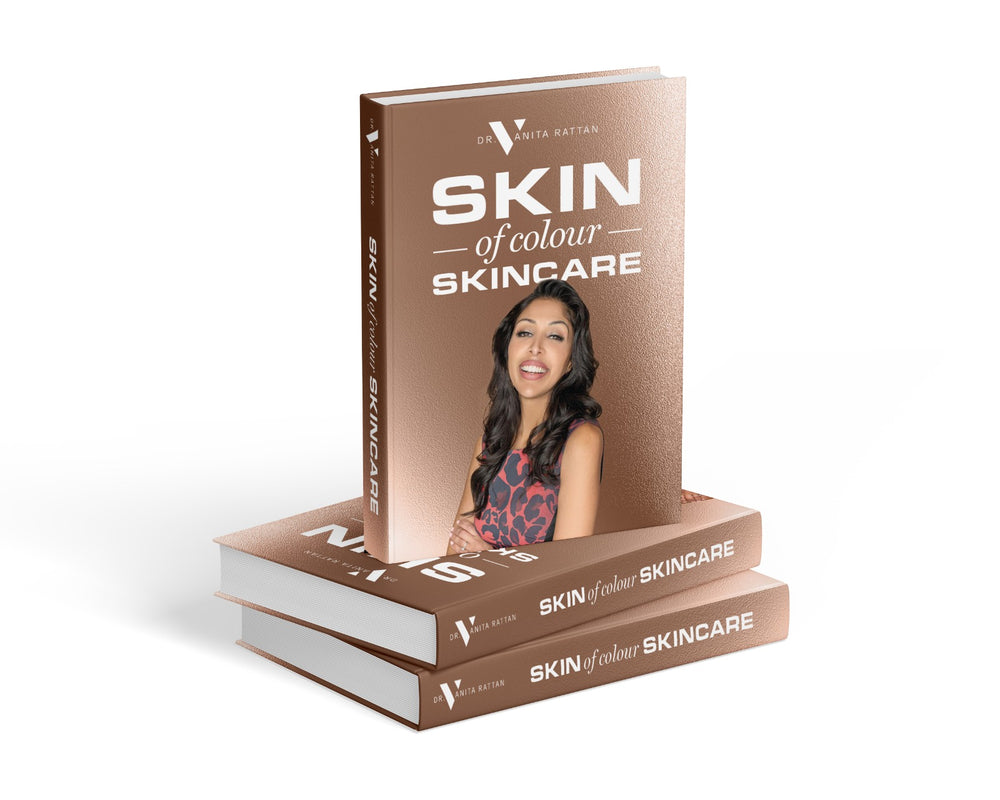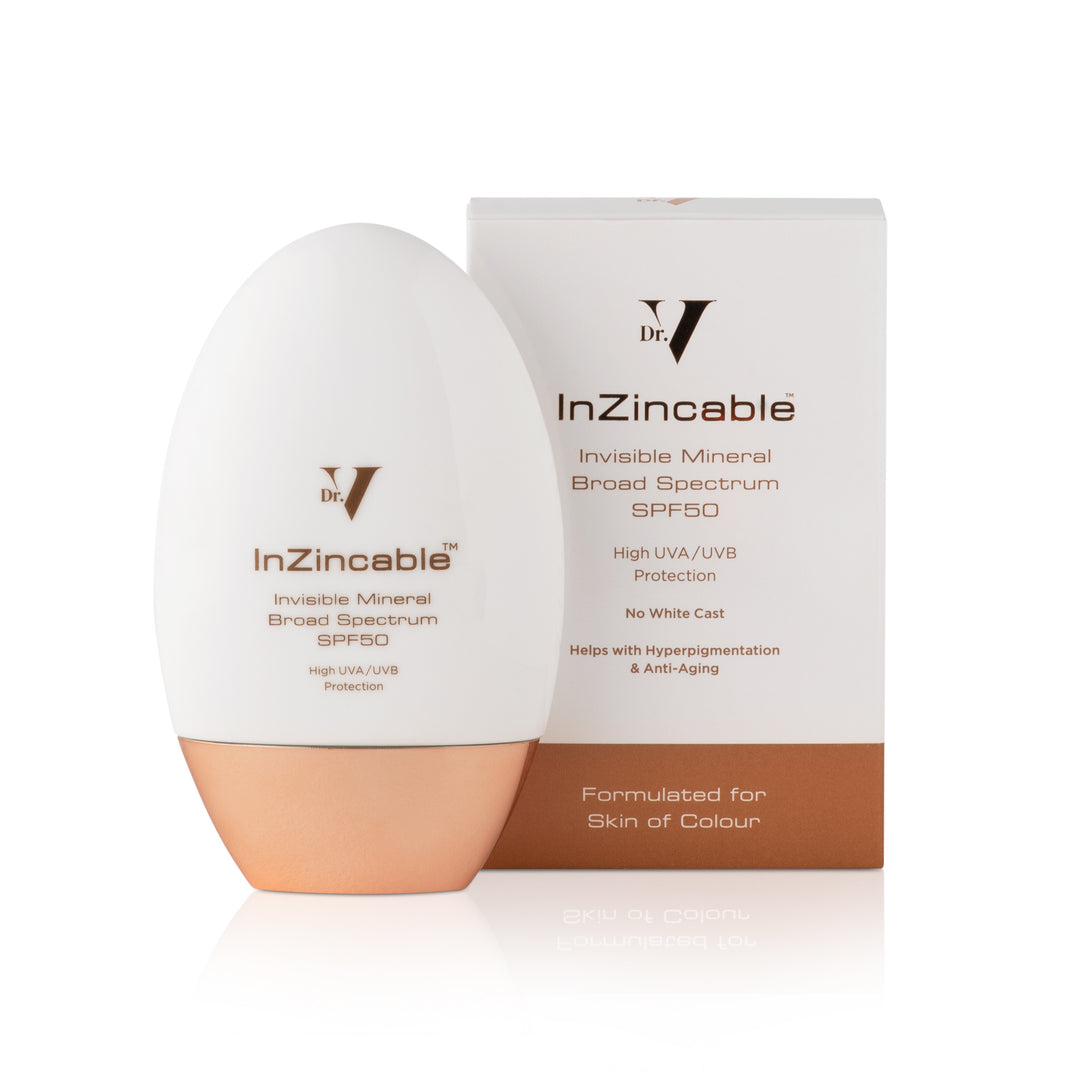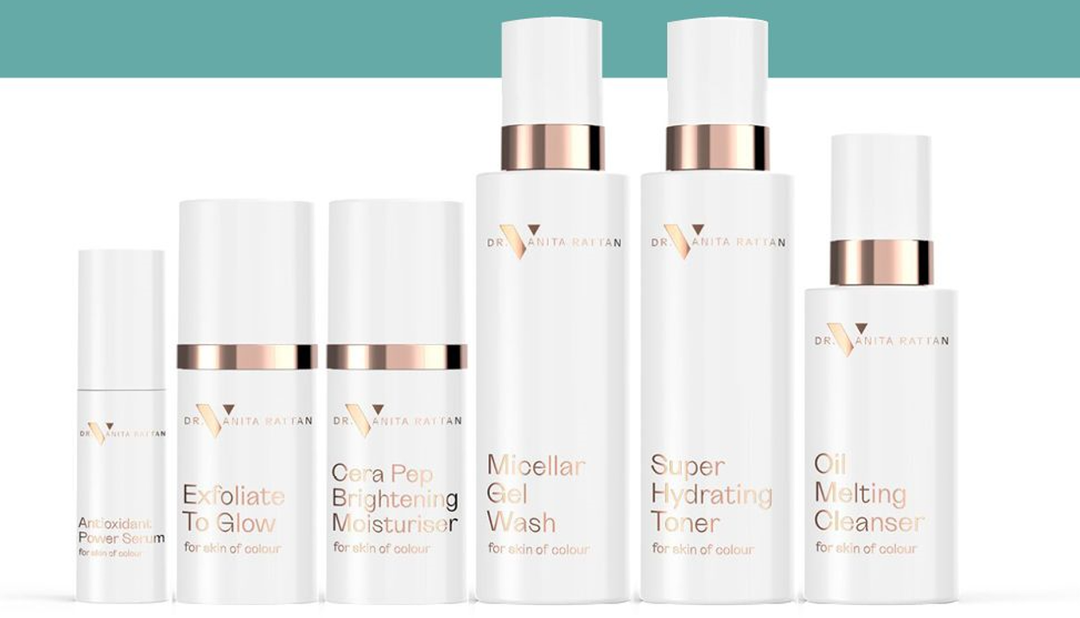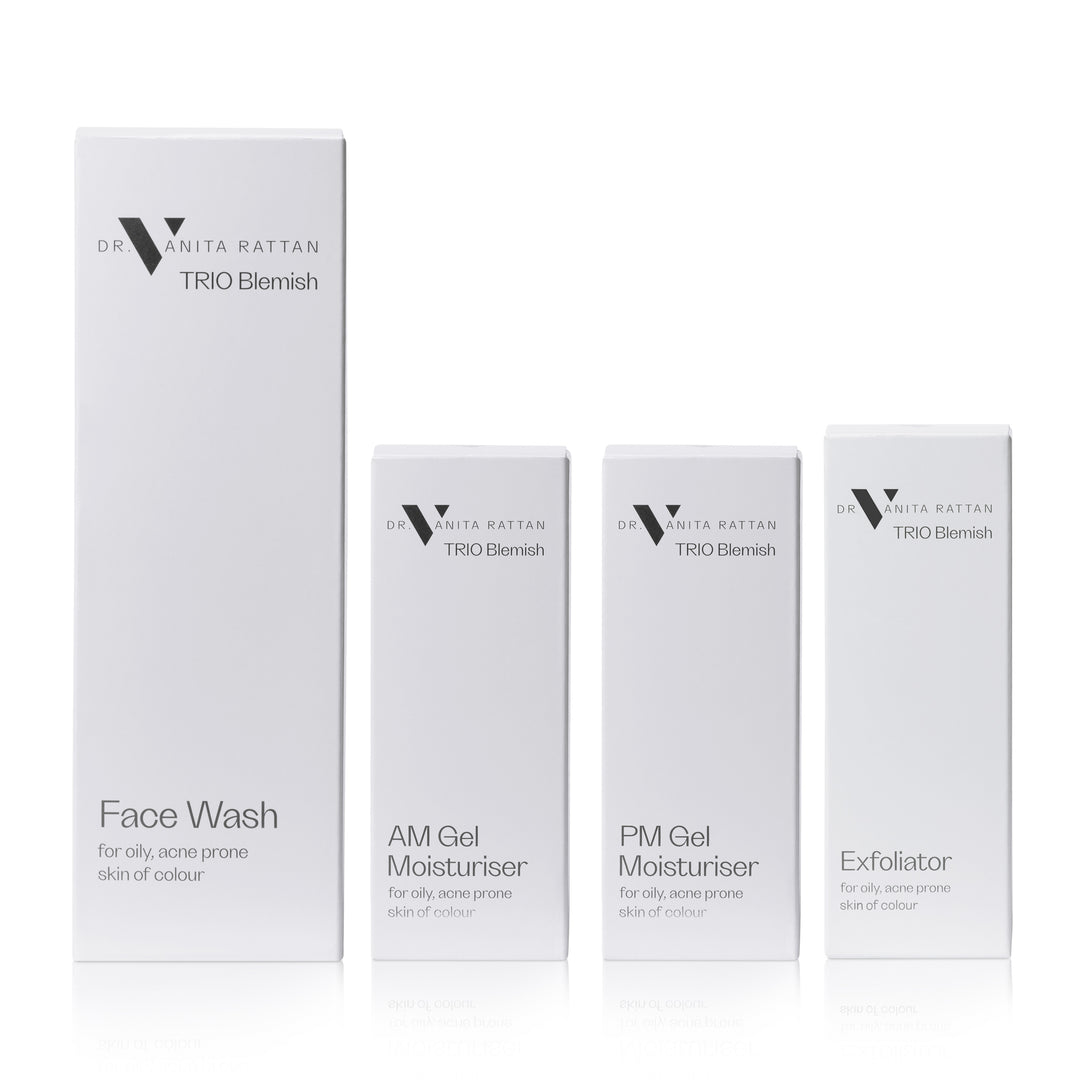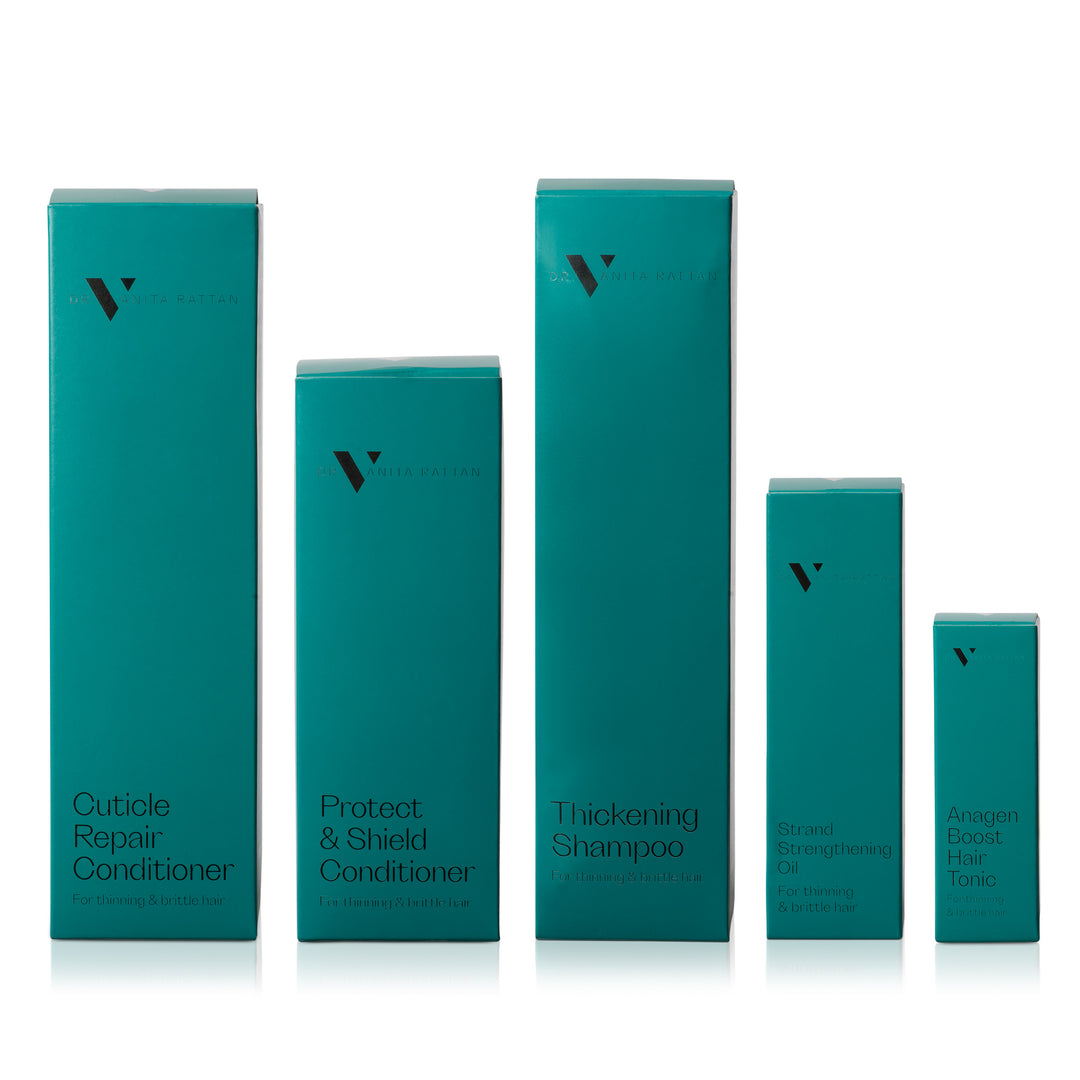Dr V Debunks: What causes grey hair in your 20’s?

Going grey is a normal part of the ageing process, but it's not something most people expect to start seeing in their 20s. The process is triggered by a pigment called melanin and as we age, our bodies produce less melanin, resulting in grey hair. Most people first notice this happening in their 30s, but it varies by genetic background so can happen earlier. While you can't stop the ageing process, there are steps you can take to slow down and reverse the greying of your hair.
Why am I finding grey hairs in my 20’s?
If you find grey hairs in your 20’s and panic thinking ‘But I’m so young!’, you shouldn’t be worried. Some people start going grey as early as their teens, but others do not begin to see grey hairs until they are in their 30s or 40s. A few grey hairs are completely normal in your 20’s, and this premature greying is likely due to genes.
Hair strands lose their pigment because their melanin-producing cells die off. The new strands continue to grow grey, silver and eventually white. These melanin-producing cells can stop producing pigment for various reasons, but typically it's genetics and natural ageing that triggers less pigment in the strands. Often, a person’s hair will start turning white around the same time as other family members.
What causes grey hair?
Of course, there are other factors besides genetics that contribute to grey hairs developing in your 20’s including:
Stress
When stressed, your body releases norepinephrine in your sympathetic nervous system. The chemical travels through the body (including into hair follicles) and may affect the melanin-producing cells living there that keeps pigment in the hair. When melanocyte stem cells are depleted, new hair turns grey, silver, or white.
Lack of collagen
We need collagen for our bodies to be healthy. It is the main building block protein that forms your bones, skin, hair, muscles, tendons, and ligaments. Starting at age 21, your body loses 1% of its collagen every year, which decreases production of new proteins and compounds that keep your hair healthy. A loss of collagen can contribute to brittle and slow hair growth.
Smoking
Smoking is one of the worst things you can do for your skin and hair. It constricts blood vessels, reducing the blood flow to hair follicles, which can cause premature hair greying.
Medical conditions
Vitiligo, a condition in which the skin loses its pigment, occurs when immune cells destroy melanin (pigment). The result can be white patches on the affected areas of skin, and it can also cause white or prematurely grey hair. Alopecia areata is another medical condition which causes sudden hair loss. Whilst this doesn’t cause grey hairs, it can make them look more noticeable, as grey or white hairs often remain where you have hair loss.
Vitamin and mineral deficiency
Vitamins are essential nutrients that help promote hair growth and prevent problems like premature ageing. Vitamin B3, B12, Folate, and Biotin are all important for hair strength and colour, so a deficiency of any of these nutrients can cause your hair to turn grey.
Can you reverse grey hairs?
Age-related or genetic greying of hair cannot be reversed. However, if grey hairs are caused by diet, pollution, bleaching or stress, studies have found that there is possibility of reversing grey hairs. Eating a balanced diet, reducing stress, and following a good hair care routine are all steps you can take to restore your hairs colour and slow down premature ageing.
When hair regains colour, it’s all about stem cells swinging back into action. Melanocytes are the type of stem cells that live in our hair follicles. We are already seeing the development of new hair treatments, where transient stem cells are implanted into the hair follicle to stimulate new hair growth. Much more study is to be had, but if others can replicate their findings, the implications are huge. In the future, science may one day develop stem cell therapies that reverse genetic greying or show that an extreme commitment to destressing can reverse hair colour loss.
What can I do about premature greying hair?
The first thing to remember is that going grey is a completely natural part of ageing process and can happen in your 20’s. You shouldn’t feel pressured to conceal your grey hairs if you don’t want to. If you’re not emotionally ready to embrace your grey hairs, then there are ways to conceal them and slow down the greying process.
There is a common misconception that cutting or plucking grey hairs will stimulate the hair follicles to produce more grey hairs, but this is untrue. Whilst I don’t recommend plucking as this can traumatise the hair follicle and lead to bald patches, scarring or infection, you can gently cut the grey hairs off. Hair colour is also a great way to disguise grey hairs, or you can add highlights to diffuse the look of grey. However, this does require maintenance and can become costly.
The best course of action for premature greying is to slow down the ageing process. Learn meditation techniques to help you better destress, quit smoking, and ensure you are getting vitamins B3, B12, Folate, and Biotin to maintain colour and density in your hair.
You can also try daily collagen supplements such as Dr V Collagen Boost to reduce the appearance of grey hairs and support the healthy structure of the hair follicle. This collagen is broken into peptides, which are recognised by fibroblasts as collagen fragments, which ‘tricks’ fibroblasts to produce more collagen in response.
Finally, our Hair Anagen Boost Tonic has been formulated to stimulate hair growth, increase hair density and reduce hair loss. Key ingredients included are Niacinamide (vitamin B-3) to help your hair grow thicker and stronger, Scutellaria Baicalensis Root Extract to stimulate cells to regenerate, Arginine which improves bloody supply to the scalp which reduces hair loss and Calcium Gluconate which reduces inflammation and holds water in the scalp to create a healing environment.


